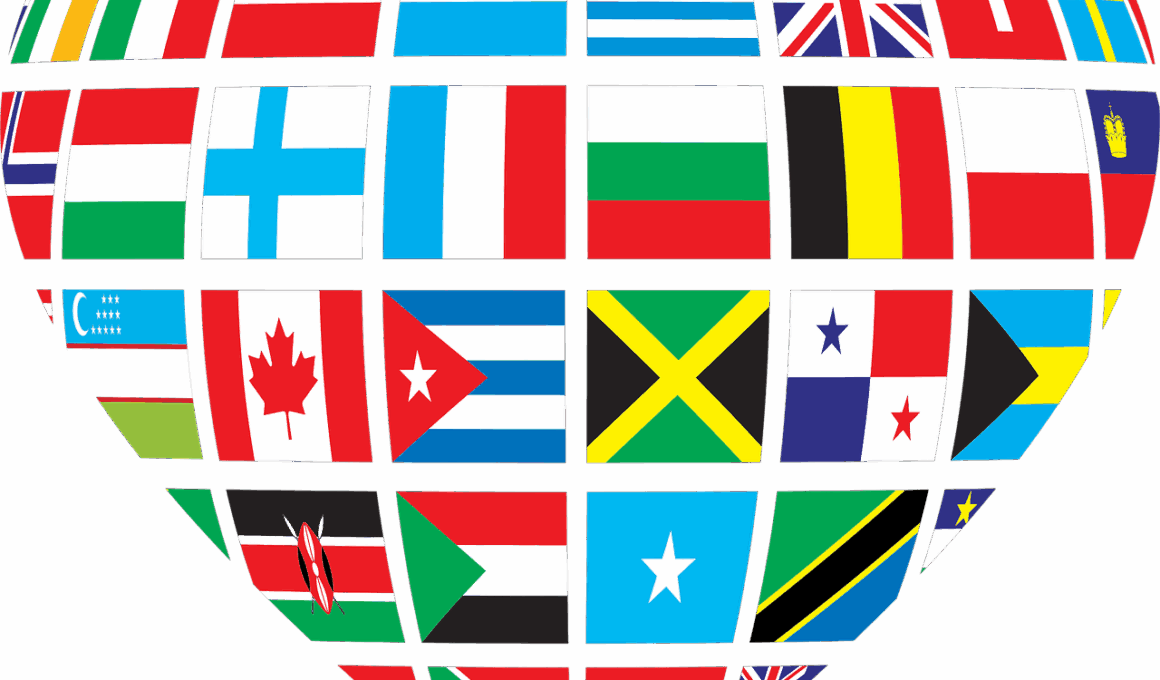The Role of International Cooperation in Tackling Economic Crises
In a rapidly globalizing world, economic crises often transcend national borders, necessitating international cooperation. Understanding the importance of collaborating on economic policy is crucial. When one country faces financial turmoil, the ripple effect can impact global markets. International cooperation allows countries to coordinate responses, share resources, and stabilize economies. Following the 2008 financial crisis, countries came together to forge agreements aimed at preventing similar disasters in the future. These efforts highlighted a shared responsibility among nations in addressing economic vulnerabilities. Engaging in dialogue and exchanging information on economic conditions can help identify potential risks and mitigate them before they escalate. Organizations such as the International Monetary Fund (IMF) play a vital role in facilitating these discussions. By establishing frameworks for collaboration, countries can establish trust and work towards sustainable solutions. This collective action not only aids individual nations but strengthens the overall global economy. Thus, embracing international cooperation leads to resilience against economic downturns and paves the way for prosperity. The alignment of economic policies worldwide is essential for ensuring stability and fostering growth that benefits all nations involved.
Furthermore, effective international cooperation involves not just immediate crisis management strategies but also long-term policy frameworks. Establishing robust mechanisms for collaboration can prevent future crises from occurring. Countries benefit from sharing best practices and leveraging international experiences to craft their policies. Through formal agreements, nations can work on specific issues, such as trade regulations, financial oversight, and systemic risk management. For instance, during the COVID-19 pandemic, global economic policy responses involved coordinated actions to stabilize financial markets. This included emergency fiscal measures and monetary policy adjustments. By supporting each other through collaborative efforts, countries can cushion the impact of shocks and foster economic recovery. Incentives for maintaining these cooperative relationships include not only stabilizing economies but also promoting trade and investment opportunities. By fostering a sense of global community, countries can work together towards common interests, enhancing security and prosperity. Engaging with international organizations equips nations with necessary tools and strategies. Therefore, enhancing international cooperation is not merely a reactive measure; it is proactive and essential in addressing long-term economic challenges that affect countries worldwide.
The Importance of Information Sharing
Information sharing is a critical aspect of international economic cooperation. Transparent communication among countries enables timely responses to emerging threats. By sharing economic data, countries can assess the potential risks and act accordingly. Early warning systems, facilitated by international organizations, are vital in monitoring global economic trends. Such systems provide analytical insights into potential economic disruptions, allowing for preemptive measures. Countries can avoid financial panics if they collaboratively identify issues sooner rather than later. An active exchange of ideas fosters innovation and creative solutions to complex problems. Comparative studies conducted through international collaboration can lead to effective economic policies. Knowledge transfers, best practices, and technical assistance result from such cooperation, providing less advanced economies with the tools to build resilience. Additionally, an open dialogue fosters trust among nations, which is essential for successful collaboration. When countries trust one another, they are more likely to engage in long-term partnerships, benefiting both parties. By prioritizing information sharing as a core tenet of international cooperation, nations can effectively manage economic crises, minimizing impacts on their populations and promoting long-term stability.
Moreover, international cooperation can assist in addressing systemic risks within the global economy. The complexity of today’s financial systems requires a concerted approach to understand and mitigate interconnected risks. For instance, the implications of one country’s economic policies can be felt worldwide. Coordinated regulatory standards and frameworks are essential for preventing vulnerabilities that could lead to broader systemic failures. Implementing international regulations, such as the Basel III framework, encourages financial institutions to maintain sufficient capital reserves. This reduces the likelihood of banks collapsing during economic downturns. Furthermore, collaborative efforts can address tax evasion and avoidance, a growing concern in the global economy. By sharing tax information and implementing measures like the Common Reporting Standard (CRS), countries can enhance tax compliance and ensure fairness. International law and regulations are continuously evolving to adapt to new economic realities. The adoption of a coordinated approach enhances the legitimacy of international institutions and promotes adherence to rules. Through cooperation, nations can navigate complex economic challenges together, minimizing the potential fallout from crises and reinforcing the global economic infrastructure.
The Role of Multilateral Institutions
Multilateral institutions play a significant role in fostering international cooperation during economic crises. Organizations like the IMF and World Bank are pivotal in providing financial assistance and guidance. They offer support in the form of loans, technical expertise, and policy advice tailored to countries’ specific needs. This assistance is crucial during periods of economic instability, where countries often struggle with liquidity shortages and high levels of debt. Multilateral institutions also facilitate dialogue among member countries, promoting consensus on key economic policies. By emphasizing collaborative approaches to problem-solving, these organizations help maintain stability within the global economy. Their efforts to coordinate responses during crises, such as the pandemic, showcased their importance in facilitating multilateral action. Additionally, they play a critical role in capacity building, enhancing countries’ ability to manage their economies effectively. Through seminars and training programs, these institutions empower nations to develop their strategies for economic resilience. Furthermore, multilateral institutions work to ensure that the benefits of international cooperation reach the most vulnerable populations, thereby contributing to sustainable development goals globally.
As countries continue to navigate the complexities of the global economy, addressing the challenges posed by economic crises is imperative. Global collaboration enables countries to overcome economic hurdles while promoting a sense of solidarity among nations. Economic crises can often lead to heightened tensions and conflicting interests; however, through cooperation, countries can find common ground. Joint initiatives to combat issues such as poverty and inequality are vital in fostering a resilient global economy. Engaging in multilateral forums allows countries to voice their concerns and contribute to collective action. Additionally, international treaties and agreements can solidify commitments to sustainable economic practices. For example, climate change and economic stability are intricately linked, necessitating a united response. Collaboration on sustainable development initiatives is essential for nurturing environmental protection while ensuring economic growth. Countries also have the opportunity to align their economic policies with environmental sustainability goals through international cooperation. Ultimately, effective global collaboration hinges on mutual understanding and compromise, allowing nations to tackle economic crises more effectively while prioritizing collective well-being and sustainable growth for future generations.
Conclusion
In conclusion, the role of international cooperation in tackling economic crises cannot be overstated. As globalization intertwines the fates of nations, collective action emerges as a critical strategy to navigate severe economic disruptions. The lessons learned from past crises emphasize the need for proactive collaboration among countries, particularly concerning shared economic policies. By fostering a culture of transparency, information sharing, and mutual respect, nations can better prepare for unforeseen economic challenges. The involvement of multilateral institutions in coordinating these efforts highlights the importance of organized support systems. By working together, countries can optimize their resources, reduce redundancies, and enhance their ability to respond effectively to crises. When economic stability is achieved, it positions nations to recover faster and sustain growth, ultimately benefiting global society. The interconnectedness of today’s economies necessitates a unified approach to tackle shared challenges. This unified stance ensures that as we face future economic uncertainties, the global community stands resilient, prepared, and effective in confronting crises. Prioritizing international cooperation is an essential commitment that will shape the landscape of the global economy for generations to come.
Addressing global economic issues is intertwined with promoting peace and stability across nations. When countries face severe economic instability, the potential for social unrest increases. This can escalate into political crises, posing threats to global peace. Conversely, cooperative economic policies can promote harmony among nations by addressing root causes of discontent. The importance of addressing the socio-economic divide is paramount, as economic inequalities often spark conflicts. Through joint initiatives aimed at sustainable development, countries can uplift vulnerable populations and promote inclusive economic growth. Collaboration in areas like education, health, and infrastructure development can create a more equitable society. Consequently, a stable economic environment reduces the likelihood of violent conflicts, creating a ripple effect of peace. International cooperation can foster dialogue on conflict resolution, offering platforms for diplomatic negotiations and understanding. The creation of economic partnerships can further solidify peace by promoting trade relations and interdependencies. By focusing on shared interests, nations move away from tactics of aggression, engaging instead in fruitful collaboration. Ultimately, international cooperation is indispensable for addressing economic crises while cultivating an atmosphere of peace and goodwill among nations.


